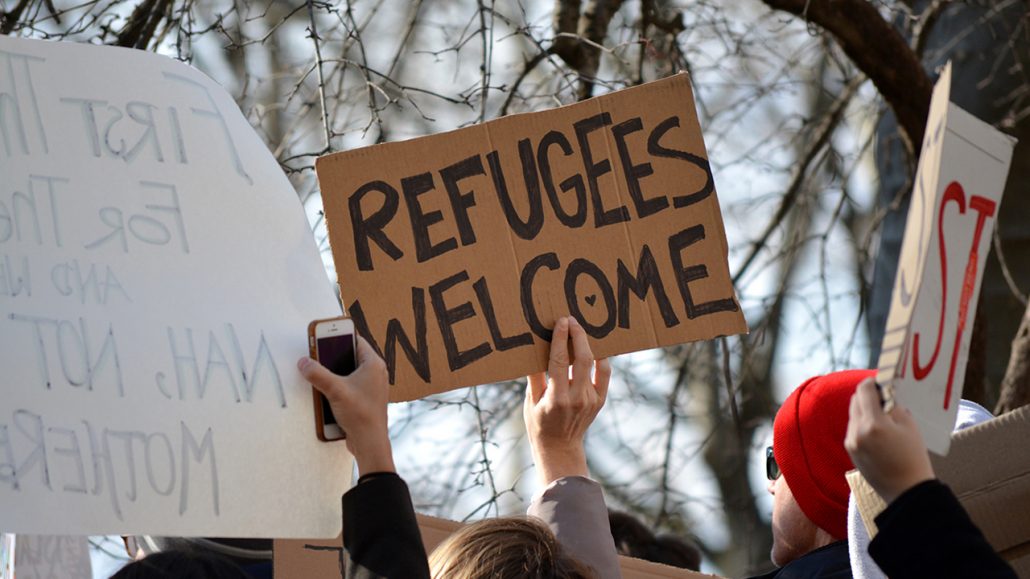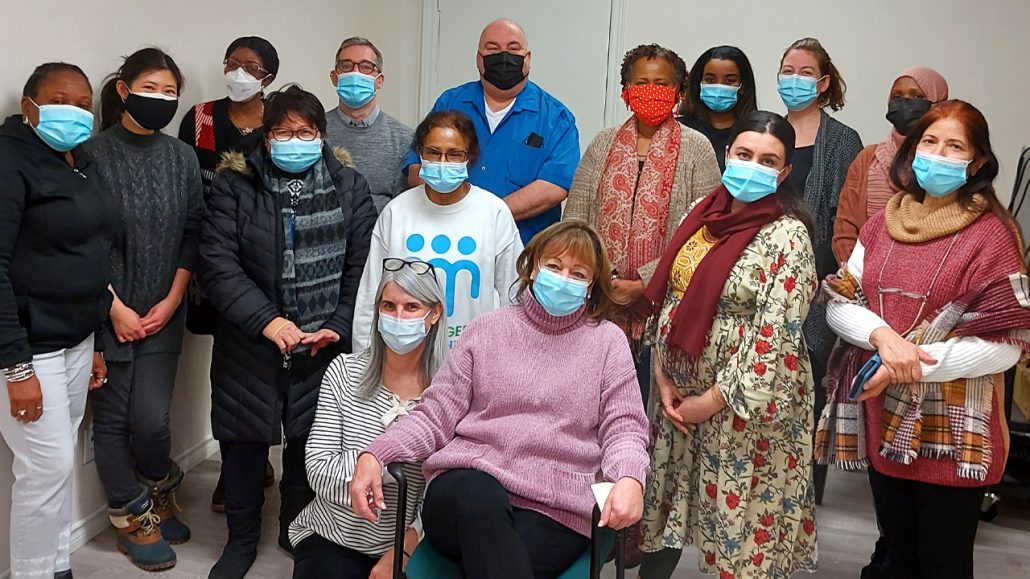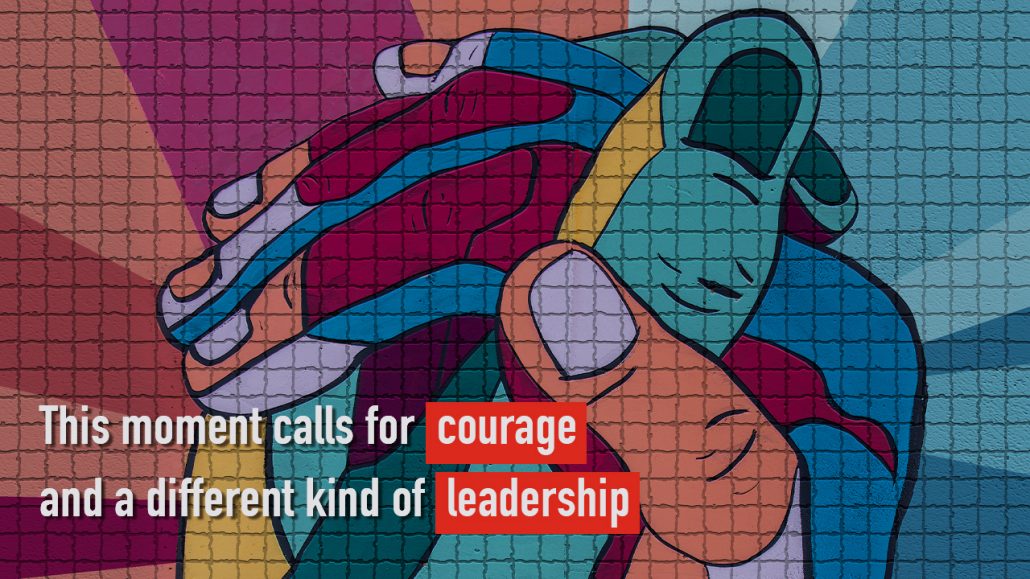
Welcoming and integrating newcomers into the GTA by supporting community-led initiatives
Dear Friend,
Three million, and counting. Ukrainian parents, children, seniors, widows, fleeing a home that can no longer provide safe refuge. Many will find shelter near their borders. But some will look beyond, to havens like Canada where Ukrainians have such deep and historic roots. Reading the news, watching the rending scenes, my heart has been heavy with those left behind, and with our local communities filled with anxiety for their country and their loved ones. But my mind has been with those fleeing. Those we’ll be looking to welcome. Where our work begins.
While there is so much to feel helpless about, on this, I don’t feel helpless. United Way and our robust network of agencies have a history, decades in the making, of welcoming and integrating refugees and newcomers into the GTA.
When the Syrian war broke out in 2015, and when Afghans fled their country last year, we supported organizations like Polycultural Immigrant Services to greet newcomers at the airport—working with health authorities to settle people in nearby hotels, provide for basic needs, process immigration applications and plan for next steps.
Long-time partners like COSTI facilitated refugee assistance for the following months, arranging for housing, work and school so that newcomers could start feeling settled, like members of the community.
For the years following, organizations like United Way-supported Afghan Women’s Organization and The Neighbourhood Organization have and will continue to support individuals and families as they continue their settlement journey, addressing PTSD and mental health issues, learning English, adjusting to school, making friends and finding employment. Funding, supporting and convening a strong network—that’s how we’ll support our Ukrainian newcomers in crisis and every day.
And strong partnerships—working with Local Immigration Partnerships, the Peel Newcomer Strategy Group, York Region’s Community Partnership Council, Toronto’s Newcomer Leadership Table and Toronto Region Immigrant Employment Council—that’s how we create the conditions for newcomers to thrive. And when they thrive, we thrive: our communities are all enriched by the perspectives, businesses, and cultures that newcomers and immigrants contribute.
By supporting United Way, you have helped support this robust infrastructure, this network, these partnerships that will welcome newcomers today, and for the years to come—whether they currently dominate the headlines, or not.
Always, and only, thank you.
Daniele Zanotti
President & CEO
United Way Greater Toronto
Things to Know Right Now

Young people’s mental health continues to decline
Growing up can be incredibly difficult at the best of times. But entering adulthood during a pandemic has added an extra layer of mental health challenges for youth. A new survey reveals that 40 per cent of Canadian youth between the ages of 18 and 34 feel like they are at a “mental health breaking point” right now.
We know that mental health is interconnected with other issues related to systemic inequities. For example, youth in low-income neighbourhoods in Ontario have a much higher rate of emergency room visits related to mental health. United Way is a proud founding partner of 211, connecting users with vital resources, including mental health services. We also fund many agencies that provide mental health supports to young people, including Strides Toronto, 360°Kids Support Services, and Brampton Multicultural Community Centre.
Preserving existing affordable housing
Affordable rents are a big draw for both old and new tenants at 33 King St., a rental tower built in Toronto in the 1970s. But there is a huge disparity between what new and older renters pay. A Toronto Star investigation found that vacancy decontrol is playing a substantial role in restricting housing affordability in towers like 33 King St. And still, these towers typically offer greater affordability than other market housing, motivating many renters to hang onto their unit even if it needs major repairs.
Such aging high-rises are the focus of United Way’s own Vertical Legacy report, which marked a decade of research by United Way and partners on decent and affordable housing. Vertical Legacy addresses the challenges highlighted in the Star article, explaining the factors jeopardizing the supply of affordable housing, and making recommendations for how to strengthen tower communities.
International Day for the Elimination of Racial Discrimination
March 21 was the International Day for the Elimination of Racial Discrimination. It recognizes that racism is a prevailing problem that harms our communities, and that we must work harder to ensure the world becomes a truly equitable, safe and inclusive place. United Way understands that racial discrimination is not new or easily resolved. Systemic racism is among the root causes of poverty, and we fight both through a range of strategies, including investing in programs and services that focus on racialized communities, examining the experiences of racialized communities in our research, and strengthening our investments in organizations that are Indigenous, Black, and equity-led, focused and serving. We will continue to work hand in hand with communities who best understand the challenges affecting them and will continue to advocate for better policies and anti-racist frameworks.
Update from the Frontlines

We know that COVID-19 left many seniors feeling stranded and more isolated than ever before, and as mask and vaccination requirements lift, this impact is actually becoming more pronounced for some. It’s taken a toll on their physical, emotional and mental health. At United Way, we are committed to ensuring that every senior in our region feels like they are part of a community that cares about their well-being. For example, we provide funding to The Neighbourhood Group’s (TNG) supportive residences. St. Stephen’s Community House, which provides housing and other services for seniors as part of TNG’s network, has increased its outreach and onsite personal care to improve the quality of life of residents since the pandemic began, adding virtual chats, workshops and balcony concerts, and sending homemade meals and flowers to their residents. Learn more about how your support helps TNG and other organizations go the extra mile.
Get Involved

Leading Social Justice Fellowship 2022
The pandemic, systemic racism and climate change have disproportionately impacted those made vulnerable by systemic barriers in our communities. This moment calls for courage and a different kind of leadership. The Leading Social Justice Fellowship, co-created by United Way Greater Toronto and University of Toronto’s School of Cities, is an innovative leadership development program for individuals from the public, private and community sectors who want to rebuild an equitable and inclusive city. If you are passionate about putting social justice at the centre of your approach to leadership, this fellowship is for you.